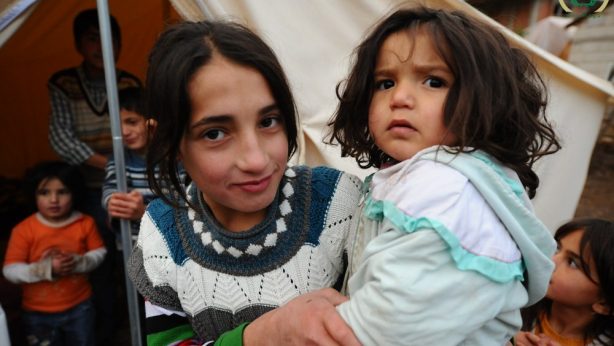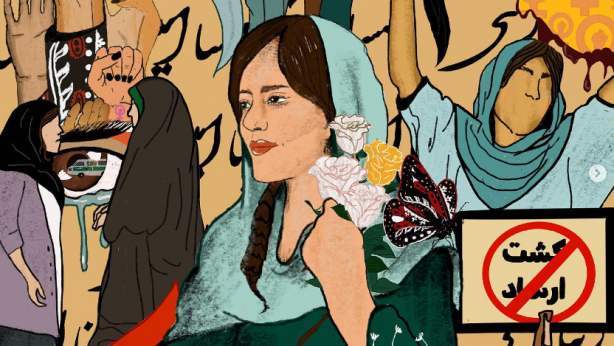The Tide is Turning. Why silence on Palestine is no longer an option.
Sheikh Jarrah is a name, which, until the past week or so, would be unfamiliar to most people outside of Palestine. Situated just outside the walls of the Old City, this Jerusalem neighbourhood is home to Palestine’s national theatre, the Dar al-Tifel museum, and the beautiful Orient House. It’s where my father has his earliest memories, and where my grandmother longed to return before she died. It is where, right now, 28 Palestinian families are doing everything to resist being torn out of their homes, and ethnically cleansed from the city of Jerusalem.
Every Palestinian has a story of dispossession. And it is an ongoing story. The subjugation of Palestine’s indigenous population didn’t end with the massacres and expulsions that characterised the creation of the State of Israel in 1948, which Palestinians refer to as the Nakba (‘catastrophe’). It didn’t end last night when Israeli airstrikes turned yet more buildings in Gaza to dust.
While there have always been fearless Palestinians resisting this subjugation and friends in solidarity around the world, for the vast majority of global citizens, Palestine-Israel has often felt taboo, shrouded in complexity – better ‘left alone’. If you recognise this feeling, here are three things you should know:

- It’s a lot simpler than you think. Certainly, there are difficult realities to face. There is no question that many Jews who came to Palestine in the 1930s were fleeing horrific persecution in Europe and elsewhere. And at the same time, in order to create a homeland in Palestine, there is no question that the Zionist project colonised the homeland of another people. At its core, this is an issue of settler colonialism and apartheid – now attested to by decades of lived experience, international resolutions, and empirical reports – the most recent published in the past few months by Human Rights Watch, and Israel’s own largest human rights organisation, B’Tselem.
- It’s not a conflict, it’s a military occupation. Consider this: A 13-year-old girl living in Gaza has experienced the full force of Israel’s military bombardment four times in her life. And, in a 365km2 strip of land that is home to 2 million Palestinians (the majority refugees from towns and villages that are now inside the State of Israel) and blockaded since before she was born, there is, quite literally, nowhere to hide. The notion of two broadly equal sides who ‘clash’, once in a while, is untenable.
- It has everything to do with you, and our collective struggle for human rights. The principles that underpin the Palestinian cause are the same values underpinning all other colonial, anti-racist, feminist and queer struggles – equality, freedom, dignity, safety, and justice.
Right now, we see the tide turning. The rise of social media, for all its drawbacks, has provided a way for Palestinians to share their daily lived experiences, and is exposing the weaknesses in the deeply skewed narratives that have dominated public discourse thus far. Hashtags like #SaveSheikhJarrah and #GazaUnderAttack have been seeing huge trending numbers. As this particular period of brutality has intensified, we are seeing the emergence of a whole host of young articulate Palestinian voices, with women and girls at the forefront – resisting, documenting, and communicating to the rest of the world.
Meanwhile, the recent global resurgence of women’s movements, Black-, anti-racist-, and indigenous struggles, has helped to expand our vocabulary. We can now unravel powerful myths around ‘both sides’ and ‘all lives matter’-type arguments that have been used to silence our voices in the past. (In this response to a post made by Rihanna, academic and BET news correspondent Marc Lamont Hill gives a succinct explanation of this.)
At the same time, there is growing awareness among those who profess progressive values that we cannot do so and be silent on Palestine. As Gigi Hadid, supermodel (and fierce Palestinian woman) puts it:
“One cannot advocate for racial equality, LGBT & women’s rights, condemn corrupt and abusive regimes and other injustices yet choose to ignore the Palestinian oppression. It does not add up. You cannot pick and choose whose human rights matter more.”
In London, last weekend, more than 100,000 people took to the streets – with similar scenes coming out from New York to Johannesburg, Sao Paulo to Sydney, Baghdad to Bangladesh. Communities and allies came together from across the spectrum of struggles – from Colombia, Black Lives Matter, Jewish organisations, the LGBTQIA community, environmentalist groups, and many more. We marched together, not as one ‘side’ against another, but as human beings united against unjust systems, wherever they exist.
Palestine is an anti-colonial, anti-racist struggle. It’s a feminist issue. One day, not too far from now, we will look back and ask ourselves how we allowed this atrocity to go on for so long.
My grandmother didn’t make it home. My father likely won’t. But, through the families of Sheikh Jarrah, and every Palestinian they represent, I am finally daring to hope for an end to this injustice – and a better world for all
–Dr. Sara Husseini
Dr. Sara Husseini is a British Palestinian from Jerusalem. She is a former advisor to several senior Palestinian governmental officials, and currently consults on a number of initiatives relating to Palestine and other social and political justice struggles, in support of their vision for change. Her main area of focus is international responsibility vis-a-vis Palestine and Israel, specifically the role of Europe. She holds a PhD in intercultural discourse and B.A. in German Studies and European History.



Well said, Sara. Your story is one of hundreds of thousands. This land and property theft and killings must stop- it is inhumane. May your father and entire family soon be welcome in Sheikh Jarrah.
Wonderfully written by Dr. Husseini! Kudos!
My empathy level — part of the “intense personality” that can be my bane but is also my pride — is at fever pitch. Sadly, the Zionist “fever” has to do with a psychosis turned criminal, currently epitomized by a man-creature who should be confronted, denounced and led away in a strait jacket. Every so often (2008-9; 2012; 2014; 2021), the psychosis boils to eruption and must be slaked by astonishing cruelty and crimes against humanity-level persecution before it can subside. Double sadly, this inhumanity exists and repeats itself ad nauseum because of accustomed impunity granted by the US and other cowards and complicit affiliates.
Viva Palestine! Palestine Is Always THE Issue!
(The top of this page indicates “1 comment.” I couldn’t find it so decided to write my own….)
Well done, Sara. Your Dad is a good friend of mine. It goes back to our AUB days. We meet at several AUB Reunions & on other occasions.